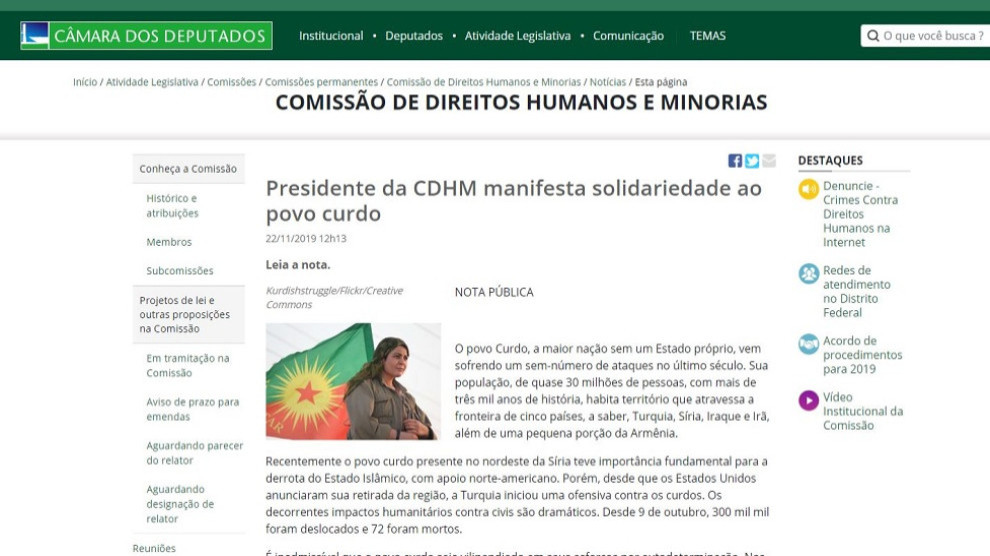CDHM president expressed solidarity with the Kurdish people
"The artificial definition of borders after World War I cannot eliminate the right of this people to exist."
"The artificial definition of borders after World War I cannot eliminate the right of this people to exist."

The president of the CDHM (Commission on Human Rights and Minorities of the Brasilian parliament) expressed his solidarity with the Kurdish people through a public statement.
The president of the CDHM, Deputy Helder Solomon, said in a statement: "The Kurdish people, the largest nation without a state, has suffered countless attacks in the last century. Its population of almost 30 million people, with more than three thousand years of history, inhabits a territory that crosses the border of 5 countries, namely Turkey, Syria, Iraq and Iran, as well as a small portion of Armenia."
Solomon added: "Recently, the Kurdish people in northeastern Syria have played a key role in the defeat of the Islamic State with the support of the United States. But since the United States announced its withdrawal from the region, Turkey has launched an offensive against the Kurds."
The resulting humanitarian impacts against civilians are dramatic, said Solomon, adding that since 9 October some 300,000 people have been displaced and 72 have been murdered.
"It is unacceptable - said Solomon - that the Kurdish people are attacked in their self-determination efforts. We denounce the successive attacks, since it is the duty of the entire international community to avoid ethnic cleansing in the region. The artificial definition of borders after World War I cannot eliminate the right of this people to exist."